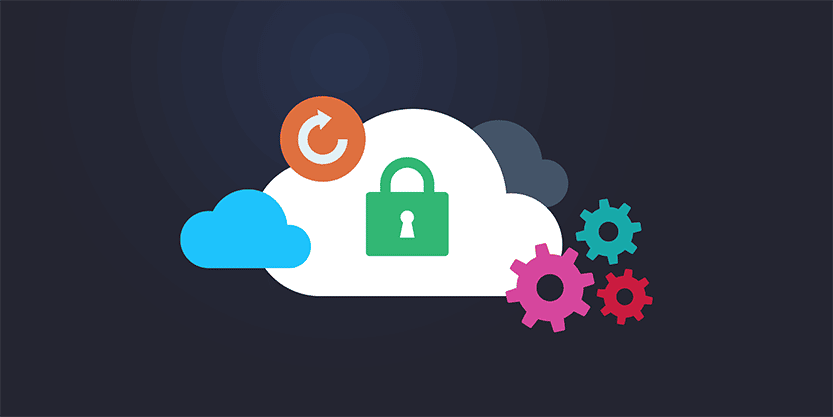Resilient Spideroak Vs Carbonite In a Nutshell
Resilient Spideroak Vs Carbonite In a Nutshell
Blog Article
Advanced Remote Data Backups Ultimate Guide
Due to its many benefits, cloud backup has grown in popularity in recent years. This article will discuss the advantages of cloud backup and the necessity of it for both individuals and companies.
Enhanced data security is one of the main benefits of cloud backup. You can protect your data from physical harm, theft, and other potential disasters by storing it in the cloud. To protect your data, cloud backup providers use effective encryption techniques.
As long as you have an internet connection, cloud backup makes it simple to access your data whenever and wherever you want. With just a few clicks, you can quickly retrieve and restore your files whether you're at home, at work, or while traveling.
Cost-effectiveness: Buying expensive hardware, keeping it up, and adding extra storage space are all common components of traditional backup methods. By providing scalable storage options that can be customized to your needs, cloud backup eliminates these costs. It's a cost-effective solution because you can only pay for the storage you need.
Cutting-edge Mailenable Mail Server Best Practices
Automatic Backups: The use of manual intervention is eliminated by the automatic backups offered by cloud backup services. To keep your data current at all times, you can set up scheduled backups at regular intervals. Time is saved and human error is less likely thanks to this automation.

Disaster Recovery: Cloud backup makes sure that your data is secure and available in the event of a catastrophe like fire, flood, or hardware failure. It is simpler to quickly recover and restore your data because your files are kept off-site in various locations.
Scalability: Cloud backup can easily handle an increase in data storage volume as your needs increase. Your storage capacity can be increased or decreased without difficulty or additional infrastructure investment.
Version Control: You can access earlier versions of your files using cloud backup systems ' version control. When working on collaborative projects or needing to refer back to an earlier version of a document, this feature is especially helpful.
Safe Enterprise Offsite Backup Security Assessment
Effective Collaboration: Even when team members are geographically separated, cloud backup enables seamless team collaboration. Real-time sharing and editing of files ensures that everyone is working on the most recent version.
Reduced Downtime: When performing data restoration, conventional backup techniques frequently cause significant downtime. Due to the quick and effective recovery of data, cloud backup allows you to reduce downtime. Your company's operations will continue without interruption as a result.
Compliance: Data storage and security are subject to specific regulatory requirements in many industries. In order find more info to store and manage your data in accordance with legal requirements, cloud backup providers abide by these compliance standards - Online Backup Upload Speed.

Reliability and Redundancy: Because cloud backup systems use redundant storage options, your data is stored on multiple servers. High availability and a lower risk of data loss are both ensured by this redundancy.
Essential Remote Backup Windows 10 Trends
You can this website relieve yourself of the stress of managing and maintaining your own backup infrastructure by using cloud backup services, which simplifies It management. By delegating the technicalities to the experts, you can concentrate on other crucial aspects of your company.
Increased Productivity: Using cloud backup eliminates the need for manual data backup and hardware management. The time that is saved can be used more effectively, increasing efficiency overall.
Important Notes: Pros And Cons Of Online Backup.
- Cloud backup provides improved physical and data security as well as theft and damage protection.
- You can retrieve and restore files from anywhere thanks to its simple accessibility.
- Cloud backup does away with the need for pricey hardware acquisitions and ongoing maintenance.
- Automatic backups lower the possibility of human error and guarantee that your data is always current.
- Cloud backup enables quick data recovery in the event of a disaster.
- Depending on your storage requirements, cloud backup systems can easily scale up or down.
Access to earlier file versions is made possible by version control, which also makes collaboration easier.
- During data restoration, cloud backup minimizes downtime.
- Cloud backup providers guarantee adherence to industry-specific regulations.
- Redundant storage options reduce the risk of data loss and guarantee reliability.
You can concentrate on other crucial aspects of your business thanks to simplified It management.
By doing away with manual backup procedures, cloud backup boosts productivity.
Fast On Site Backup Best Practices
In conclusion, cloud backup has many benefits, such as improved productivity, easier access, lower costs, automatic backups, disaster recovery, scalability, version control, reduced downtime, compliance, and reliability. People and companies can protect their data and make it accessible at all times by taking advantage of these advantages.
Report this page